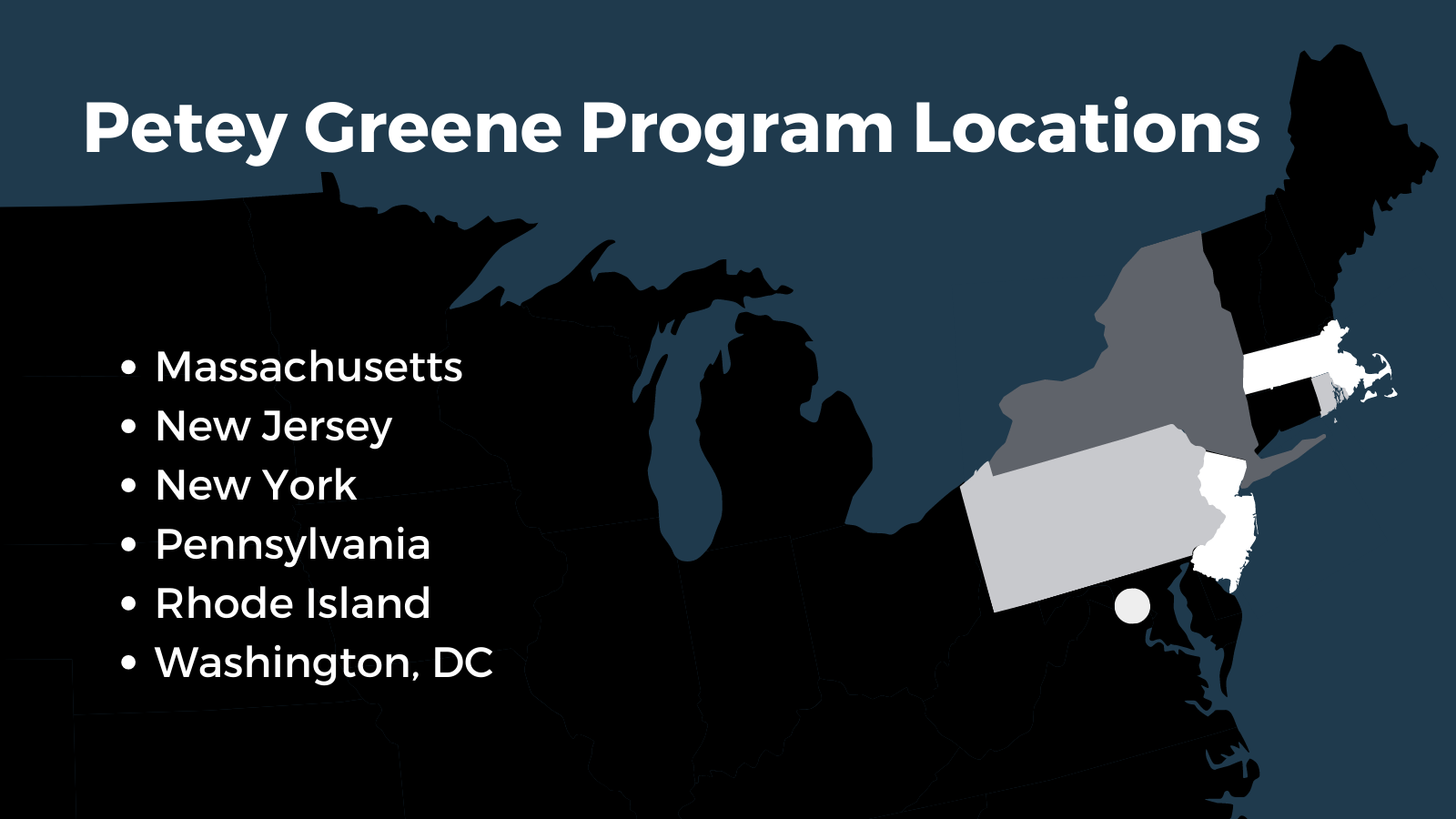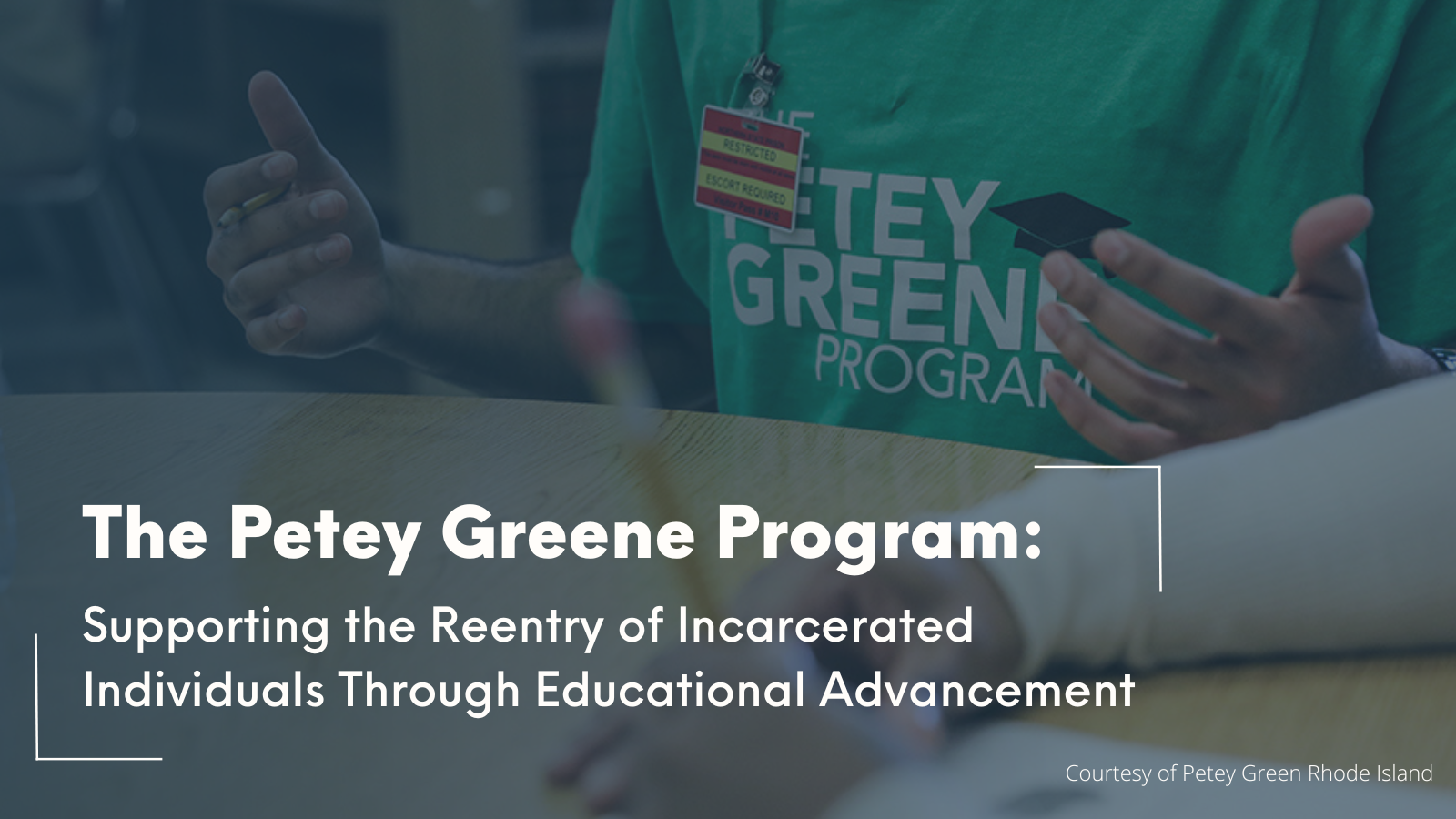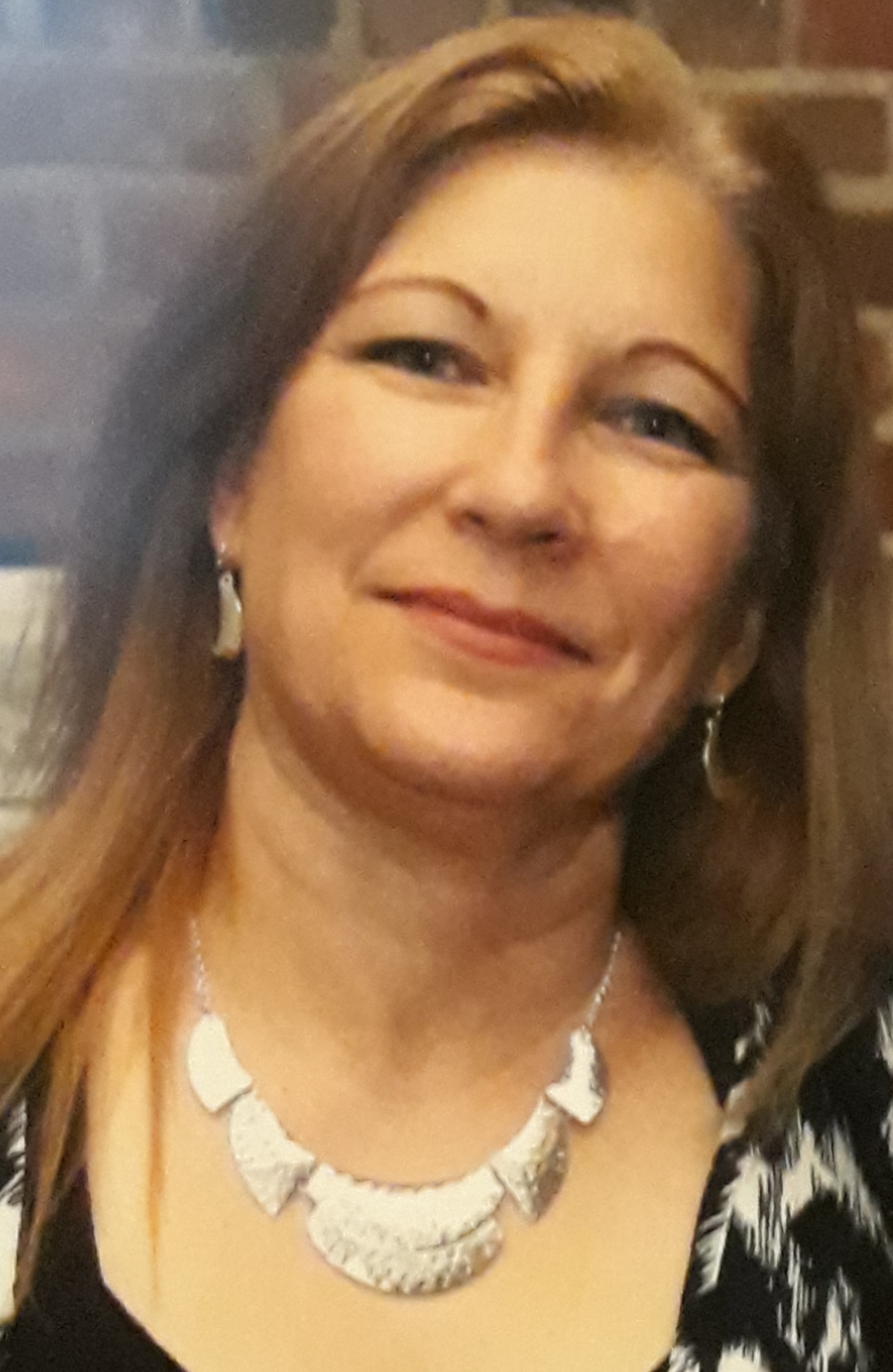There is ample evidence of the benefits of education for people who are incarcerated, such as reducing recidivism and improving other outcomes. For instance, research shows a 43 percent reduction in recidivism among people who participate in prison-based education programs and as low as 0 percent recidivism when higher levels of education are achieved. Additionally, increasing one’s education leads to better and more secure employment post-incarceration, another known factor for helping formerly incarcerated individuals successfully reintegrate into their communities. Other benefits of carceral education programs include increased hope for participants and improved relationships between correctional staff and residents.
Meanwhile, more than 80 percent of people in prison and jails have reported using illicit substances in their lifetime. In addition, 43 percent of people in state prisons and 23 percent in federal prisons reported having a mental health problem. Comprehensive reentry supports, including access to education, can help these individuals achieve or maintain recovery and stay out of prison.
The national nonprofit Petey Greene Program (PGP) is working to change the trajectory of people cycling in and out of prisons by providing high-quality, trauma-informed, and person-centered tutoring to currently and formerly incarcerated individuals in seven regional programs across the Northeast.
Who Was Petey Greene?
Ralph Waldo “Petey” Greene (1931 –1984), was a pioneering Black media personality, community organizer, and civil rights activist who used his wit and popularity to shine a spotlight on structural inequality and systemic racism. Formerly incarcerated himself, Petey Greene was a consummate storyteller who spoke often about the structural barriers facing formerly incarcerated people. The PGP seeks to honor Petey Greene’s legacy of social justice advocacy and truth-telling by supporting the educational journeys of currently and formerly incarcerated students and educating both tutors and the public about the ways in which, in Petey Greene’s words, “something [is] wrong with the system.”Summary courtesy of the Petey Greene Program
Personalized Education Programming
The PGP links volunteer tutors with local prisons, jails, and reentry programs to support incarcerated and formerly incarcerated people to achieve their educational goals. The organization’s mission is two-fold: First, to support incarcerated individuals as they advance in their academic goals, and second, to train volunteers to understand and advocate to address the harms of mass incarceration.
A trauma-informed approach to prison education is critical, as many people who are incarcerated have a history of trauma, and many more experience trauma during incarceration. “The one-on-one human interaction of tutoring can combat the dehumanizing experience of incarceration. It allows the student to be treated with dignity in an environment that often does the opposite,” says Lynne Sullivan, regional manager of the PGP in Rhode Island and Massachusetts. “Our tutors help incarcerated people believe in themselves, see that they matter, and begin to dream of a future they once considered impossible. And our tutors experience the fulfillment of making a difference in someone’s life and helping counteract some of the negative consequences of the carceral experience.”
The organization’s College Bridge Program is focused on working with incarcerated people to help them reach college readiness. This is accomplished through two humanities-rich writing and math skills courses to prepare them for further education. “Education is power,” says Sullivan. “The power to change.”
Supplemented with the PGP’s signature volunteer tutoring support, the PGP creates class curricula that engage the students’ critical thinking. “Many people in carceral settings, even those with high school diplomas, lack the learner skills that help people succeed in education,” says Sullivan. “The PGP is one of few organizations focused on the pre-collegiate level and supporting individuals in gaining their general equivalency diploma (GED), High School Equivalency Test (HiSET), or high school diploma.” She adds, “Helping people gain the skills, competence, and confidence to prepare for post-secondary education is the next crucial step.”
This focus on preparation to advance to higher levels of education is all the more important with the restoration of Pell Grant eligibility for people who are incarcerated. Pell Grants are a type of federal grant to fund higher education; they have been unavailable to incarcerated people since 1994 but were restarted in July 2023. “The reinstatement of Pell Grants is expected to bring many more opportunities for people in carceral settings to get a college education,” says Sullivan.
Highly Qualified Tutors and Wrap-Around Services
At the heart of the PGP’s successes are highly trained, dedicated volunteer tutors who go into local prisons, jails, and reentry settings to provide educational support. Tutors go through an extensive training program that includes modules on the following:
- The carceral state and educational justice
- Education in carceral and reentry spaces
- Tutoring strategies and practice
- Ethical volunteerism and intentional engagement
- Tutor development training
- Regional- and facility-specific orientations
“The Petey Greene Program seeks to develop justice-oriented citizens—those who understand the root causes of injustice—by providing college students and community members with the opportunity to tutor. We are also educating volunteers on the need and opportunity to affect systemic change in the criminal legal system,” says Sullivan. This includes the program’s Justice Education Series, a series of workshops, often led by people with lived experience of incarceration like Ms. Sullivan, to help learners dive deeper into topics important to those they serve.
Since its founding, the PGP has tutored more than 1,600 incarcerated students and placed more than 3,500 volunteers from more than 40 partner universities.
Local Attention Through a National Program
 The PGP offers services in five states and the District of Columbia. Each regional site works closely with local colleges, jails, and prisons to customize programming to their communities’ unique needs.
The PGP offers services in five states and the District of Columbia. Each regional site works closely with local colleges, jails, and prisons to customize programming to their communities’ unique needs.
For the PGP in Rhode Island, Sullivan and her team work with undergraduate and graduate student volunteers from Brown University and within the Providence, Rhode Island community to tutor learners at local reentry programs such as the Reentry Campus Program (RCP).
The RCP includes wrap-around support for participants, including access to safe housing, mental health services, and other supports that allow them to focus on their educational journeys. Currently, students at the Rhode Island RCP are receiving support in study and testing skills to prepare them to become licensed drug and alcohol counselors. “Ninety-five percent of the people incarcerated are going to reenter the community,” says Sullivan. “Education significantly reduces recidivism while providing options for change. Educational advancement can be an important element of a life in recovery, especially in terms of purpose and building a community of support and hope.” The PGP also supports 20 youth programs in Massachusetts and brings volunteer tutors into several adult institutions for pre-collegiate and College Bridge education.
Sullivan herself is a carceral education success story. She earned her bachelor’s degree in sociology while in prison in Massachusetts. Since release, Lynne has completed her master’s degree in criminal justice at Boston University. She is also a licensed drug and alcohol counselor. “The support I received in pursuing my education while incarcerated allowed me to break down barriers and take a different path in my life,” she says. “Education gives people an option. An option to change, an option to grow, an option to make a different choice and be a better you who you never thought you could be,” she adds. “It did for me.”
Like what you’ve read? Sign up to receive the monthly GAINS eNews!



